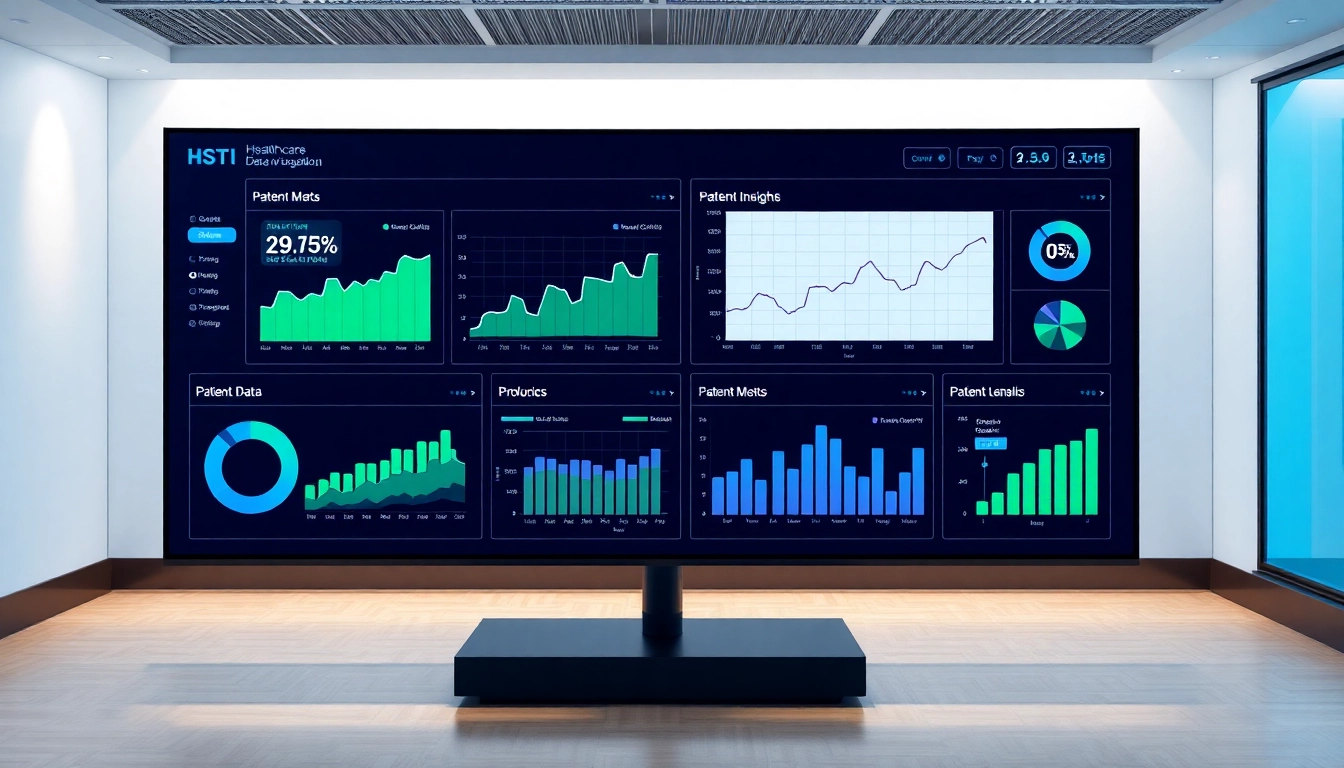Understanding Informatics in Healthcare
In today’s data-driven world, the healthcare landscape is revolutionized by the integration of informatics—a key field focused on the use of information technology to enhance patient care and health outcomes. As we dive deeper into the domain of informatics, we will uncover its significance, components, advantages, challenges, and future possibilities that promise to shape healthcare delivery. For detailed information on this evolving field, please refer to https://www.informaticsview.com.
What is Informatics?
Informatics is the scientific field that revolves around the effective management and utilization of data, information, and knowledge to improve human health, particularly through the delivery of healthcare services. It encompasses various sub-disciplines, including health informatics, clinical informatics, bioinformatics, and public health informatics, each serving specific aspects of health and medical practice.
Importance of Informatics in Patient Care
The application of informatics in patient care is crucial as it facilitates better decision-making through data analysis, enhances communication among healthcare providers, and streamlines operations within healthcare settings. By implementing informatics, healthcare professionals can deliver more precise, timely, and effective care, ultimately leading to improved patient outcomes.
Role of Technology in Healthcare
Technology serves as the backbone of informatics in healthcare. Innovations such as electronic health records (EHRs), health information exchange (HIE) systems, and mobile health applications play essential roles in transforming raw data into actionable insights. These technologies empower healthcare providers to make informed decisions, engage patients more comprehensively, and adapt services to meet individual health needs.
The Components of Health Informatics
Data Management Systems
At the core of health informatics lie data management systems, which are designed to collect, store, manage, and analyze patient data. These systems must ensure accuracy, confidentiality, and availability of information while complying with regulations such as HIPAA. Effective data management enables healthcare institutions to derive meaningful insights from patient data and improve care quality.
Clinical Decision Support Systems
Clinical Decision Support Systems (CDSS) augment the healthcare decision-making process by offering evidence-based prompting and alerts to professionals treating patients. These systems can reduce errors, streamline workflows, and ensure adherence to best practices and guidelines. For example, a CDSS may remind physicians about potential drug interactions or suggest alternative treatments based on a patient’s medical history.
Telemedicine Innovations
Telemedicine, enabled by informatics technology, bridges the gap between patients and healthcare providers, especially in remote areas. Through virtual consultations and remote monitoring, telemedicine enhances access to healthcare services, ensures continuity of care, and significantly reduces travel barriers. The present-day healthcare environment increasingly relies on telemedicine as patients seek convenience and efficiency in their interactions with providers.
Benefits of Implementing Health Informatics
Improving Patient Outcomes
Informatics plays a pivotal role in improving patient outcomes by promoting collaborative care, enhancing patient engagement, and ensuring data-driven decision-making. When healthcare providers have timely access to thorough and accurate patient data, they can tailor treatment plans to meet individual needs and preferences, thereby enhancing the quality of care provided.
Cost Efficiency in Healthcare
Cost efficiency is another significant benefit associated with the implementation of health informatics. By minimizing unnecessary tests and procedures through streamlined processes and clear communication, healthcare organizations can reduce costs while maintaining high-quality care. Additionally, informatics can optimize resource allocation and provider workflows, further enhancing cost efficiency.
Enhancing Communication Among Providers
Effective communication among healthcare providers is paramount for coordinated care provision. Health informatics facilitates seamless data-sharing platforms, enabling different providers to access and exchange patient information effortlessly. This collaboration reduces the likelihood of fragmented care and enhances the safety and efficacy of treatment plans.
Challenges in Health Informatics Adoption
Data Security Concerns
Data security is a primary concern in health informatics due to the sensitive nature of patient information collected and utilized. Cybersecurity threats, such as data breaches and ransomware attacks, can jeopardize patient privacy and lead to loss of trust in healthcare systems. Institutions must invest in robust security measures, including encryption, access controls, and regular audits, to safeguard data integrity.
Integration with Existing Systems
Integrating new informatics solutions with existing systems can pose significant challenges. Disparate systems may lack compatibility, leading to data silos that adversely affect performance and outcome. Healthcare organizations must carefully evaluate interoperable solutions and design integration strategies that allow for a smooth transition and minimal disruption to patient care.
User Training and Adaptation
The success of health informatics largely depends on the end-users’ proficiency. Healthcare providers and administrative personnel require adequate training to effectively utilize informatics tools. Continuous education programs and user-friendly interfaces can promote user adaptation, minimize resistance to new technologies, and maximize the potential of health informatics in improving efficiency.
The Future of Health Informatics
Emerging Technologies
As technology continues to evolve rapidly, health informatics will be shaped by innovations such as big data analytics, Internet of Things (IoT), and cloud computing. These emerging technologies have the potential to transform data utilization, improve interoperability, and facilitate advanced predictive analytics, thus enriching patient care and operational efficiency.
The Impact of Artificial Intelligence
The incorporation of artificial intelligence (AI) in health informatics is set to revolutionize the field. AI algorithms can analyze vast datasets at unprecedented speeds, aiding in predictive analytics, diagnostic accuracy, and tailored treatment plans. Furthermore, machine learning capabilities will enhance the adaptability of healthcare systems, providing personalized experiences to patients based on their unique needs and preferences.
Policy and Regulation Changes
Regulatory frameworks surrounding health informatics will continue to evolve as the field progresses. Policymakers must address privacy, ethical considerations, and data standardization to effectively balance innovation with patient protection. By establishing clear guidelines, the healthcare industry will be better positioned to embrace informatics technologies without compromising patient rights.



